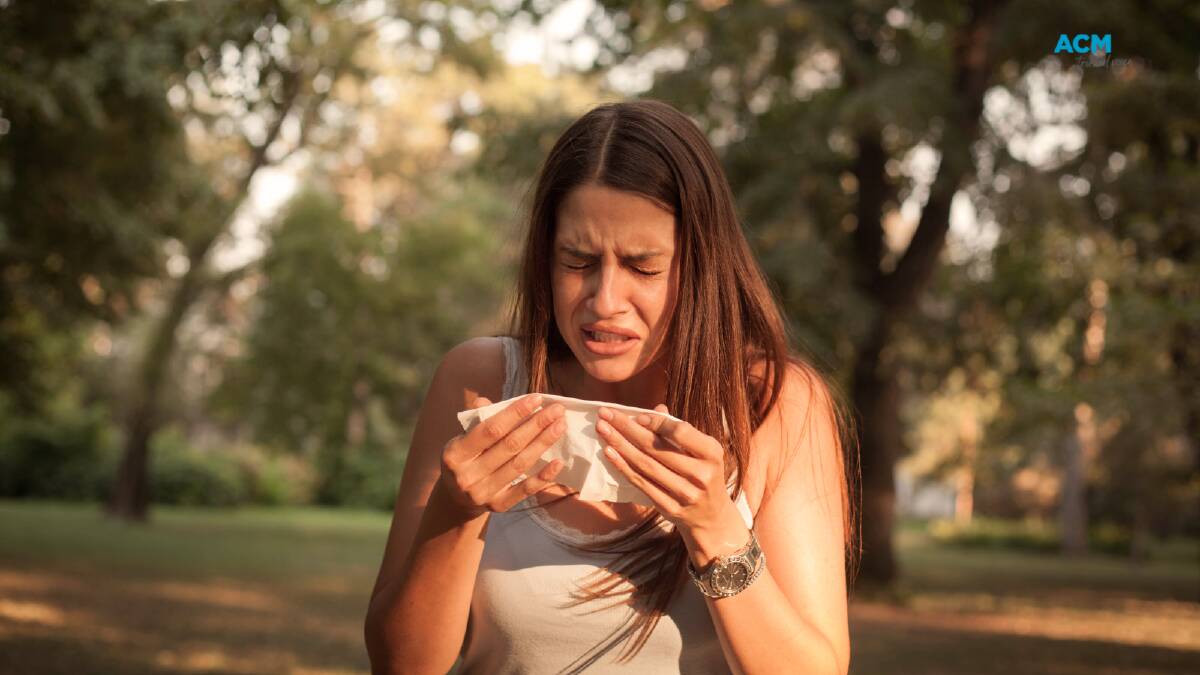If you're thinking now that spring is over that your allergies will clear up, think again.
Subscribe now for unlimited access.
or signup to continue reading
Allergies are not seasonal for many people, with some allergic to numerous things that keep them sneezing, itching and wheezing year round.
In Australia, 20-30 per cent of adults have allergic rhinitis, which are allergies that largely affect the nasal tissues.
This leaves sufferers with runny, sneezy, itchy and congested nasal passages, itchy eyes and often an itchy throat or itchy ears - they're all connected with the upper respiratory airway.
Why me, you ask

People are often exposed to allergens at the right time of life, or at a vulnerable time of life, and that switches on an allergic response, Professor Connie Katelaris said.
The professor of immunology and allergy at the University of Western Sydney, said genetics and the environment played a big part in whether or not you're going to get allergies.
If your family members have allergies, you're more likely to as well.
What's making us so allergic?

Dust mite is the most common aeroallergen (respiratory allergen). They are microscopic creatures that live in bedding, carpets and homes.
"It's primarily an indoor allergen and we have very high levels in our houses in general, especially along the eastern seaboard because of the particular balance between temperature and humidity which is very conducive for dust mite growth," Professor Katelaris said.
Pollen comes in next as a major allergy irritant for Aussies, in particular grass, tree and weed pollens.
With Australia's high rate of pet ownership, cat allergies are also very common. This is followed by fungal allergens, including airborne moulds from dying vegetation.
"In Australia the commonest pattern is to have multiple sensitisations. For instance dust mite plus pollen, so you might have symptoms all year round with a peak in the season," Professor Katelaris said.
Is hayfever and allergy the same thing?
Allergy is a general term for hypersensitivity that switches on an allergic antibody response to stimuli such as food, dust or cats.
Hayfever is a common term that refers to allergic rhinoconjunctivitis, or allergies largely affecting the nasal tissues.
So, what can you do about it?
Modern medicine may have come a long way, but there is no cure.
Professor Katelaris said a good diagnosis is key so you know exactly what you're allergic to and what to target.
"Once you know that there might be things you can do to reduce exposure, although that's never a major component," she said.
If you have regular moderate to severe allergies, a preventative treatment is important.
"Just like we speak about people with asthma going onto preventive therapy to settle down the allergic inflammation, we speak the same way about the nose," Professor Katelaris said.
Just like we speak about people with asthma going onto preventive therapy to settle down the allergic inflammation, we speak the same way about the nose.
- Professor Connie Katelaris
"We have a number of sprays that are intranasal steroid sprays. Safe, despite that word steroid, that can be used on a daily basis to settle down the allergic inflammation, and they work extremely well if they're used correctly for the majority of people."
IN OTHER NEWS:
That can be supplemented with antihistamines if you're having an acute exposure.
For those with ongoing symptoms that aren't under control, immunotherapy is possible. This involves the manipulation of the immune response and can dampen it down, even though it can't be cut out completely.
"That's a long therapy that usually goes for somewhere between three to five years and it's done either by injections at regular intervals, or putting a little wafer under the tongue on a daily basis," she said.
"It helps to suppress the allergic response and build up a protective response, but it does take time and it's not complete, but it's the closest thing we have to long lived improvement."
Do you get desensitised?
People will not develop a tolerance to antihistamines or nasal sprays, Professor Katelaris said.
"If you're taking antihistamines and you don't think they're working as well, it's probably because the allergy has got worse and you probably need something more than an antihistamine," she said.
"It's either the nose has become more blocked and it's not penetrating properly, or your allergy has become more severe."


